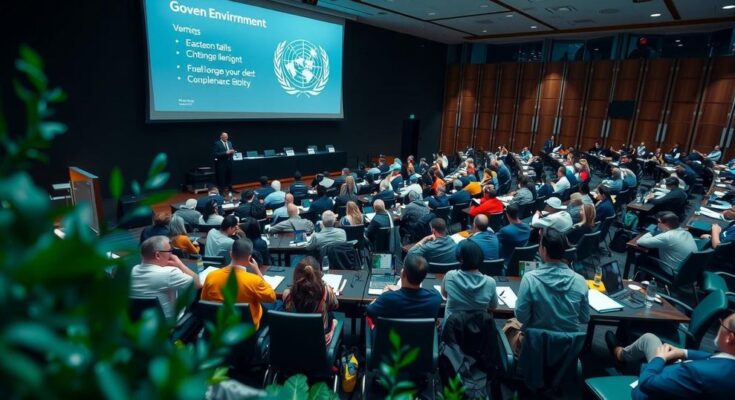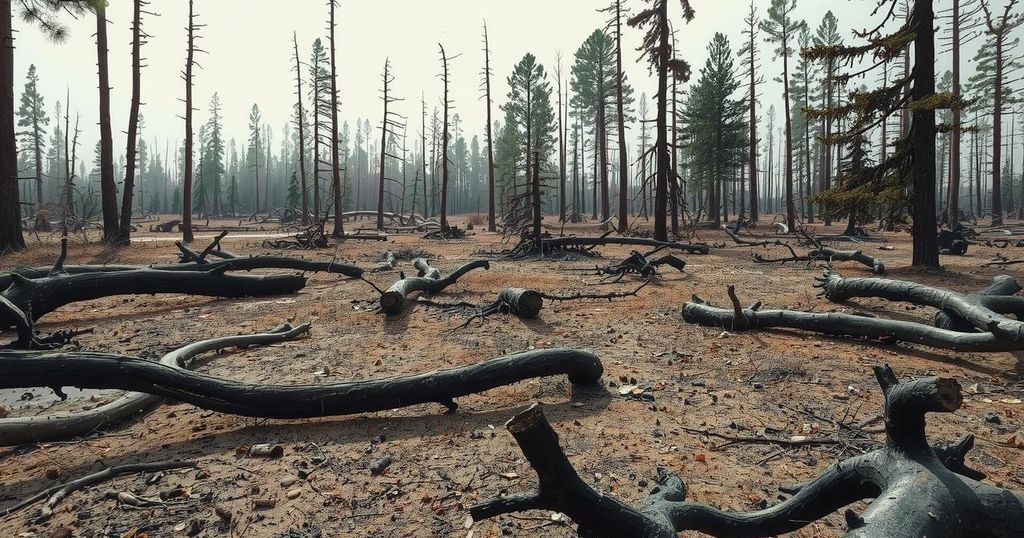The UN climate talks in Baku face significant challenges, with past conferences often descending into failure. Key events such as COP6 in The Hague and COP15 in Copenhagen illustrate the difficulties of achieving global consensus on climate action. Recent discussions on biodiversity in Colombia also reflect ongoing struggles, raising concerns about future international negotiations.
Global climate negotiations continue to face significant challenges, as evidenced by the ongoing UN climate talks in Baku where negotiators struggle to forge consensus. Since the inaugural UN climate conference in 1995, many sessions have either devolved into disputes or resulted in outright failures. A landmark event occurred during COP6 in The Hague in 2000, which was notable for being the only session to be temporarily suspended due to indecision amidst controversial political dynamics surrounding the US presidential election. The uncertainty surrounding the election of George W. Bush, a known climate sceptic, versus Al Gore, a prominent advocate for climate action, complicated negotiations over critical issues such as carbon credits from land use that were central to the Kyoto Protocol’s emission reduction goals.
The eventual withdrawal of the US from the Kyoto Protocol catalyzed renewed commitment from countries like the European Union to pursue climate objectives, introducing a paradox wherein the rejection of the treaty propelled major discourse in Bonn later on.
However, perhaps the most disappointing outcome in the history of climate conferences occurred during COP15 in Copenhagen in 2019, which began with soaring expectations following Barack Obama’s ascendance to the presidency. Leaders from numerous nations gathered, yet the meeting was marred by a lack of productive negotiation. Delegates anticipated leadership-driven decisions, leading to procrastination and subsequent frustrations among smaller nations that felt excluded from the negotiations. Despite the Copenhagen Accord acknowledging climate change, it failed to establish binding emission targets, leading to widespread dissatisfaction. The delicate negotiations were further strained by logistical failures, exemplified by referees, notable for their hunger amidst ongoing discussions.
The recent biodiversity conference (COP16) in Colombia highlights the continuing trend of unsuccessful negotiations, as talks over funding to address environmental degradation broke down due to a lack of quorum. This persistence of indecision raises questions about the efficacy and future of international climate diplomacy.
The United Nations climate conferences, also known as COPs (Conferences of the Parties), have been pivotal in shaping global responses to climate change and biodiversity loss since their inception. These annual sessions are forums for countries to negotiate and establish agreements aimed at reducing carbon emissions and addressing the impacts of climate change. However, many conferences have been marked by contention, with failures to achieve consensus arising from diverging national interests, logistical challenges, and geopolitical factors. Key historical moments such as COP6 in The Hague and COP15 in Copenhagen reveal the complexities and difficulties inherent in these negotiations, illustrating the significant obstacles to effective climate action on a global scale. Recent gatherings have continued this trend, casting doubt on the ability of international bodies to effectively address pressing environmental issues.
In conclusion, the history of UN climate conferences highlights a recurrent theme of struggle and failure to achieve significant outcomes in the face of political, logistical, and structural challenges. The propensity for disagreement among nations, as illustrated in events ranging from COP6 to the recent biodiversity talks in Colombia, underscores the deep divisions that exist in global climate negotiations. As negotiators gather in Baku, the pressing need for consensus and actionable commitments persists, emphasizing the importance of international dialogue in combating climate change.
Original Source: www.rfi.fr




